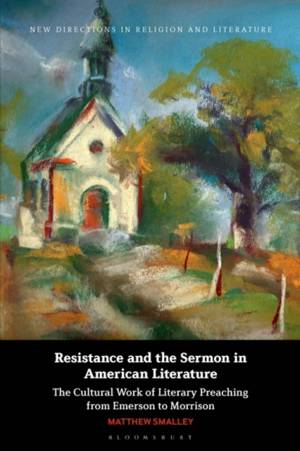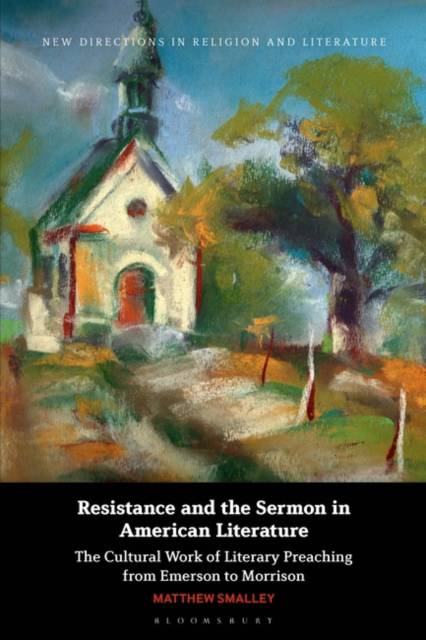
Je cadeautjes zeker op tijd in huis hebben voor de feestdagen? Kom langs in onze winkels en vind het perfecte geschenk!
- Afhalen na 1 uur in een winkel met voorraad
- Gratis thuislevering in België vanaf € 30
- Ruim aanbod met 7 miljoen producten
Je cadeautjes zeker op tijd in huis hebben voor de feestdagen? Kom langs in onze winkels en vind het perfecte geschenk!
- Afhalen na 1 uur in een winkel met voorraad
- Gratis thuislevering in België vanaf € 30
- Ruim aanbod met 7 miljoen producten
Zoeken
Resistance and the Sermon in American Literature
The Cultural Work of Literary Preaching from Emerson to Morrison
Matthew Smalley
€ 203,95
+ 407 punten
Uitvoering
Omschrijving
With seemingly obsessive regularity, American authors, from the mid-nineteenth century to the present, evoke the sermon at culturally loaded moments in their works, deploying the form to underscore the cultural work they imagine their novels or poetry to perform. Examining this longstanding tradition of "literary preaching," this book draws on literary applications of design theory to provide a nuanced account of American literature's complex, anxious, and persistent engagement with the Protestant sermon.
Analyzing literary preaching as a transhistorical form that simultaneously attracts and repels authors, Smalley demonstrates how major US writers-Ralph Waldo Emerson, Walt Whitman, Nathaniel Hawthorne, Rebecca Harding Davis, William Faulkner, Zora Neale Hurston, and Toni Morrison-have subverted the sermon's predominantly religious content in order to reimagine profound moments of reform in a political, cultural, and aesthetic mode. This study elucidates new lines of literary kinship, offers fresh readings of familiar works, and establishes literary preaching as an undertheorized but significant tradition in American literature.Specificaties
Betrokkenen
- Auteur(s):
- Uitgeverij:
Inhoud
- Aantal bladzijden:
- 232
- Taal:
- Engels
- Reeks:
Eigenschappen
- Productcode (EAN):
- 9781350400009
- Verschijningsdatum:
- 27/06/2024
- Uitvoering:
- Hardcover
- Formaat:
- Genaaid
- Afmetingen:
- 156 mm x 234 mm
- Gewicht:
- 498 g

Alleen bij Standaard Boekhandel
+ 407 punten op je klantenkaart van Standaard Boekhandel
Beoordelingen
We publiceren alleen reviews die voldoen aan de voorwaarden voor reviews. Bekijk onze voorwaarden voor reviews.









